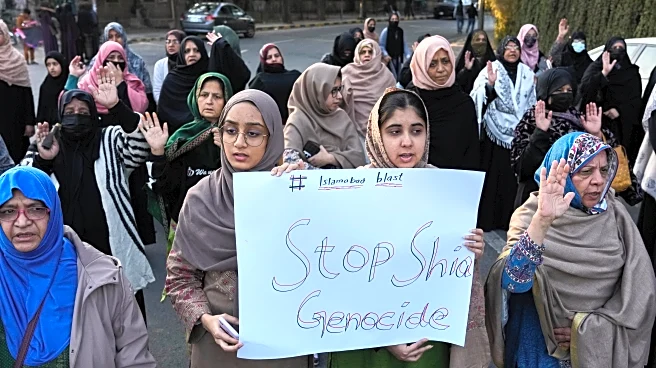Rapid Read • 7 min read
Rodrigo Paz, a centrist candidate from the Christian Democratic Party, is leading the Bolivian presidential election according to early official results. The election took place on August 17, 2025, and has been marked by a significant shift in voter sentiment. Paz's unexpected lead has been attributed to a growing desire for change among the Bolivian electorate, as expressed by a teacher in La Paz who stated, 'This election feels hopeful. We need a change of direction.' The results have surprised many observers, given the historical political landscape in Bolivia, which has often been dominated by more polarized candidates.
AD
The potential election of Rodrigo Paz as Bolivia's president could signal a shift in the country's political direction, moving towards more centrist policies. This change may impact Bolivia's international relations, economic strategies, and domestic policies. A centrist leadership could foster greater political stability and attract foreign investment, benefiting the country's economy. Additionally, Paz's leadership might influence Bolivia's stance on regional issues, potentially affecting diplomatic relations with neighboring countries and the broader Latin American political landscape.
If Rodrigo Paz maintains his lead and wins the presidency, he will likely face the challenge of uniting a politically diverse nation and implementing his centrist agenda. The transition period will be crucial for setting the tone of his administration and addressing the expectations of voters who seek change. Key stakeholders, including political parties, business leaders, and civil society groups, will be closely monitoring Paz's next moves, particularly his cabinet appointments and initial policy decisions.
The election of a centrist candidate like Rodrigo Paz could have long-term implications for Bolivia's political culture, potentially reducing polarization and fostering a more collaborative political environment. This shift might encourage other Latin American countries to consider centrist approaches in their own political systems, influencing regional dynamics and promoting stability.
AD
More Stories You Might Enjoy












